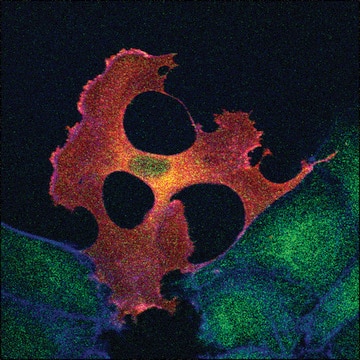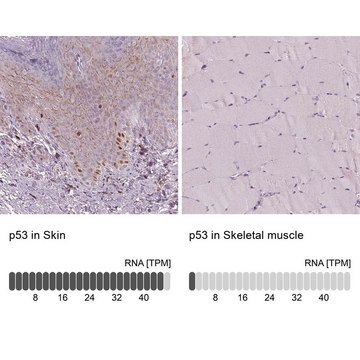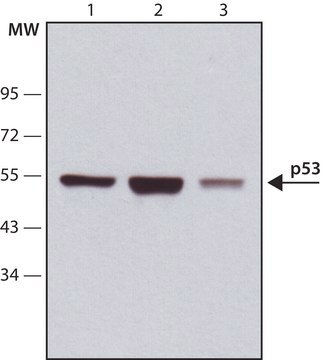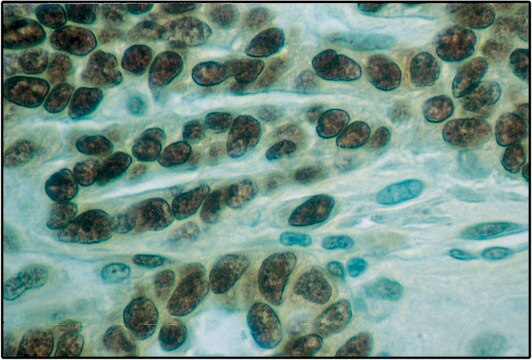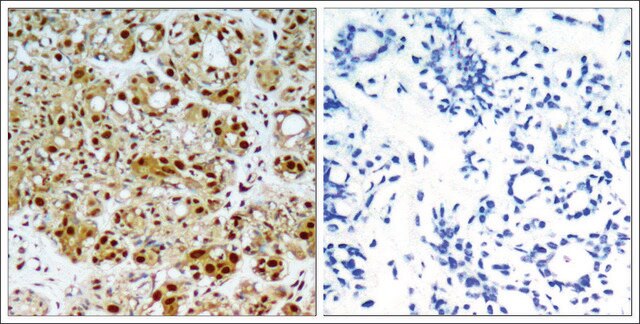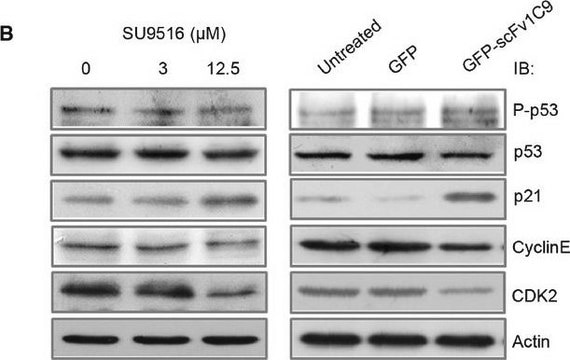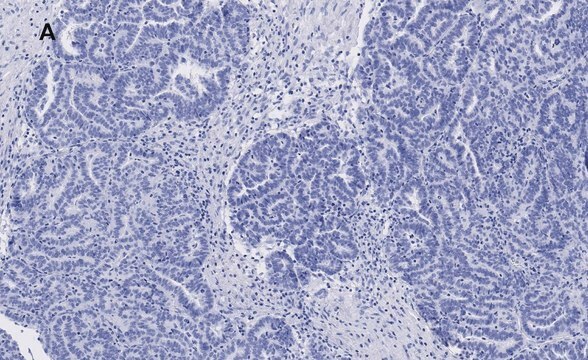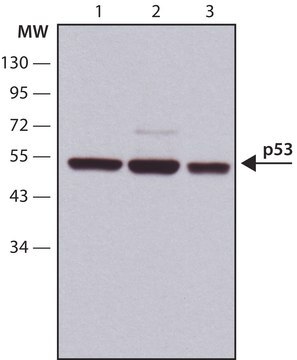05-224
Anti-p53 Antibody, clone BP53-12
clone BP53-12, Upstate®, from mouse
Synonym(s):
Anti-BCC7, Anti-BMFS5, Anti-LFS1, Anti-P53, Anti-TRP53
About This Item
Recommended Products
biological source
mouse
Quality Level
antibody form
purified immunoglobulin
antibody product type
primary antibodies
clone
BP53-12, monoclonal
species reactivity
human
packaging
antibody small pack of 25 μL
manufacturer/tradename
Upstate®
technique(s)
immunohistochemistry: suitable
immunoprecipitation (IP): suitable
western blot: suitable
isotype
IgG2a
NCBI accession no.
UniProt accession no.
shipped in
dry ice
target post-translational modification
unmodified
Gene Information
human ... TP53(7157)
General description
Specificity
Immunogen
Application
Epigenetics & Nuclear Function
Transcription Factors
Quality
Target description
Linkage
Physical form
Storage and Stability
Analysis Note
Raji cell lysate
Other Notes
Legal Information
Disclaimer
Not finding the right product?
Try our Product Selector Tool.
recommended
Storage Class Code
10 - Combustible liquids
WGK
WGK 1
Certificates of Analysis (COA)
Search for Certificates of Analysis (COA) by entering the products Lot/Batch Number. Lot and Batch Numbers can be found on a product’s label following the words ‘Lot’ or ‘Batch’.
Already Own This Product?
Find documentation for the products that you have recently purchased in the Document Library.
Our team of scientists has experience in all areas of research including Life Science, Material Science, Chemical Synthesis, Chromatography, Analytical and many others.
Contact Technical Service